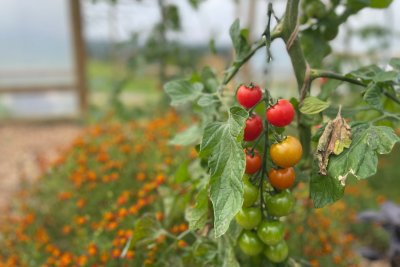News • Sustainable Farming Campaign
Meat tax could save hundreds of thousands of lives each year
Research by Sustain member the Centre on Population Approaches for Non-Communicable Disease Prevention has found that a health tax on red and processed meat could prevent more than 220,000 deaths and save over US$40 billion in healthcare costs every year.

The new study, published in PLoS One, looked at what would be the optimal levels of taxation for red and processed meat in 149 world regions, to account for the cost burden on healthcare systems and to spur changes in consumption patterns. The study found that in high income countries red meat would need to be 20% more expensive and processed meat, like bacon, sausages and jerky, would need to be more than double its current price to account for the health costs associated with their consumption.
The World Health Organization classifies beef, lamb and pork as carcinogenic when eaten in processed form, and classified as probably carcinogenic when eaten unprocessed. In addition, these three types of meat have been linked to increased rates of coronary heart disease, stroke and type 2 diabetes. Rather than prohibiting their consumption, the research set out to estimate tax levels that would account for the healthcare costs related to it.
Like taxes on other products that can harm health including alcohol, tobacco and sugar in drinks, a tax on red and processed meat could encourage consumers to make healthier choices. The research suggests that if the health taxes were introduced, consumption of processed meat would decline by about two portions per week in high-income countries and by 16% globally, while unprocessed red meat consumption would remain steady, due to consumers substituting it for processed meat.
Meat tax would offset health care costs
The study estimates that in 2020 there will be 2.4 million deaths attributable to red and processed meat consumption, as well as $285 billion in costs related to healthcare. The paper was led by Dr Marco Springmann a senior researcher at the Centre on Population Approaches for Non-Communicable Disease Prevention - which is a member of the Sustain alliance. Dr Springmann investigate the impact of eating meat on economies around the world:
“The consumption of red and processed meat exceeds recommended levels in most high- and middle-income countries. This is having significant impacts not only on personal health, but also on healthcare systems, which are taxpayer-funded in many countries, and on the economy, which is losing its labour force due to ill health and care for family members who fall ill.”
The calculation of tax levels follows the principles of optimal taxation to account for the health costs of red and processed meat consumption. Tax revenues would amount to US$172 billion globally and cover 70% of the health costs that red and processed meat consumption puts on society. To fully cover the costs, the health taxes would have to be doubled.
“I hope that governments will consider introducing a health levy on red and processed meat as part of a range of measures to make healthy and sustainable decision-making easier for consumers. A health levy on red and processed meat would not limit choices, but send a powerful signal to consumers and take pressure off our healthcare systems,” said Dr Springmann.
Reduced consumption of processed meat was also identified by the study as having positive knock-on effects on climate change and body weight. The researchers found it would reduce global greenhouse gas emissions by over one hundred million tonnes, mainly due to lower beef consumption, and it also reduced levels of obesity by driving consumers to lower-calorie substitutions.
“Nobody wants governments to tell people what they can and can’t eat. However, our findings make it clear that the consumption of red and processed meat has a cost, not just to people’s health and to the planet, but also to the healthcare systems and the economy,” Dr Springmann concluded.
A ‘sledgehammer to break a nut’
The meat industry responded to Dr Springmann’s research saying that a meat tax would be like ‘a sledgehammer to break a nut.’ In an interview with Food Manufacturer Dr Carrie Ruxton from Meat Promotion Wales said that a tax would be ill-advised and ignores the health benefits of eating meat, especially for young children, teenage girls and women whose diets are often lacking in valuable nutrients.
Published Thursday 15 November 2018
Sustainable Farming Campaign: Sustain encourages integration of sustainable food and farming into local, regional and national government policies.





